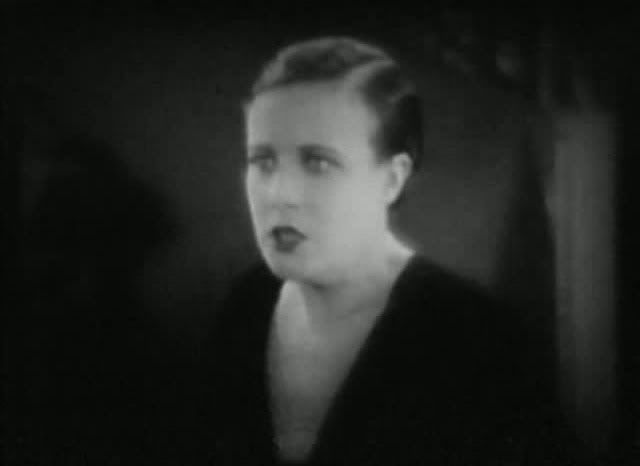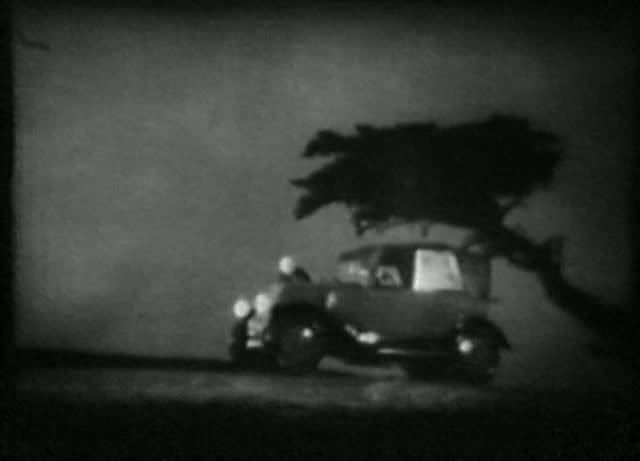
Howard Hawks' Paid To Love is one of the director's early silent films, made before his style really crystallized during the transition to talkies. The film revolves around an utterly silly plot: the poverty-stricken imaginary kingdom of San Savona is trying to get a loan from the American banker Peter Roberts (J. Farrell MacDonald), but before it can, the King (Thomas Jefferson) must marry off his son Prince Michael (George O'Brien), who is more interested in cars than women and whose perpetual bachelorhood represents a threat to the kingdom's stability. The King and Roberts thus try to find a woman to attract Michael's attention, an "alarm clock" to wake him out of his disinterest in love and sex. After a trip to Paris, the King and Roberts locate the performer Dolores (Virginia Valli), who acts like a wild woman in Parisian bars to entertain gullible tourists, and they decide that she'll be perfect to seduce the Prince and draw his attention to the pleasures of women.
There's an obvious gay... well, it can't even be called a subtext it's so obvious. The clear implication initially is that Michael is gay: a bachelor, uninterested in women, who prefers to do guy things like fix cars and shoot at target ranges. In one early scene, he's contrasted against his cousin, the lascivious ladies' man Prince Eric (William Powell, delightful as ever even without the use of his voice). The two men enter the throne room in turn, each of them passing a pretty maid in the hallway. As each man passes, Hawks playfully inserts a closeup of the maid's legs below her skirt as she sashays past. Eric of course turns his head to look, so the closeup suggests his lecherous point of view, admiring the female beauty he sees everywhere (earlier, his face is hidden for the first few moments of his first scene by the girl who's passionately kissing him). Michael, however, seems blithely unaware of the maid and her legs, so when Hawks cuts to the closeup of the maid's legs, it's no longer a point of view shot but a reminder of what the Prince is missing as he walks by, barely looking at the maid. Michael seems totally oblivious to female charms, but naturally all it takes to change him will be a glimpse of the right woman, and immediately he'll fall in love.
The film's premise is the stuff of goofy sex comedy, but Hawks only delivers on the promise of sexy mayhem in small, concentrated bursts and some particularly effective sight gags. For the most part, the physical comedy is stiff and unfunny, and the film's pace is a little on the languid side for such a lightweight comedy. Hawks' slapstick is inert, though there are early signs of his interest in a comedy of humiliation, especially in the scene where Roberts is discomfited by his inability to straighten out his uncomfortable-looking suit for his first meeting with the royal family.

The film is at its best in the isolated moments when it displays bursts of naughty invention and sly humor. In one scene, Eric waits in hiding for Dolores, who, through some tortuously set up misunderstandings, has been seducing him instead of Prince Michael. As Dolores walks into the room, not noticing Eric sitting in the corner, she begins undressing, and Hawks keeps cutting between tantalizing glimpses of undergarments and flashes of fabric being pulled off and Eric, sitting quietly in the corner, leering and, hilariously, peeling a banana, suggestively touching its tip as he watches. It's one of those jokes so blatant in its symbolic sexuality that one can hardly believe the filmmakers dared, and those moments, though spread out thinly through this film, represent its best bits.
Hawks' style is simple and direct, though hardly static. He makes interesting use of slow pans and tracking shots, subtly suggesting connections and characters' thoughts with movements of the camera. In one scene, Dolores has arrived at Michael's home unaware that he's the man she's being paid to seduce — because, of course, the conventions of such romances require that the bad girl genuinely fall in love with the man she's planning to con. It's a rainy night and her car stalls out, and after a struggle through the mud and steep slopes outside she collapses at the Prince's doorstep. When she wakes up, she's naked in bed, a sheet draped across her body, and the camera pans around the room from her point of view, taking in the sight of her clothes strewn around the room, on the floor and draped on chairs, until finally her gaze settles on Michael. Without a hint of overt sexuality or nudity, this pan economically suggests the mental picture that's certainly running through Dolores' head at this point, of this stranger undressing her and slipping her naked body into bed.
Paid To Love represents a time when Hawks was still more or less a novice director rather than the fully formed master he'd develop into soon after the switch from silents to talkies. The mostly functional intertitles occasionally contain a wry pun or punchline, but the bulk of the film's humor is visual and physical; Hawks' gift for verbal banter couldn't really develop in text form, particularly since so many of his best later films featured torrents of words in a constant, fast-paced rush. This film isn't even as indicative of the director's future direction as the marvelous A Girl In Every Port, though there are certainly hints, here and there, of Hawks' sensibility forming even at this early point. For that, and for its moments of unsubtle sexual humor, it's worth seeing for Hawks' admirers, though the director's true breakthroughs were still several years ahead of him.

5 comments:
Wow. Thanks for this post. It's a Hawks I've heard of but never seen.
It took awhile for the style we know of tody as Hawksian to develop, and it's clear that Paid To Love reflects the sexual sophistication of the 20's much in theway of his more famous A Girl in Every Port -- whose sailor heroes are toyed with by vamp supreme Louise Brooks but clearly much prefer each other.
Hawks always quipped of featuring in his later films "A love story between two men." But in his silents that notion was rather literal.
Yeah, this kind of plays as an early version of some of the themes that would be much more fully and entertainingly explored in A Girl In Every Port, which is probably Hawks' first great film. Paid To Love has its moments, and any Hawks fan is bound to get something out of it, but it's pretty rough. A shame that all of Hawks' silents are so difficult to see, though. I have a few more I've tracked down in similarly lousy VHS rips, but you'd think the developmental years of such an important director would be worthy of a better fate.
This is a Hawks film I am admittedly unfamiliar with, but am most interested in after this engrossing essay. Perhaps my colleague Mr. Fish knows it; I'll have to inquire now. The seeming triumph of the sex humor and gay subtext make it worth considerably more than just an item for Hawks completists, though as you rightly assert the director really didn't come into his own until he made the transition from silents to talkies.
Typically superlative review.
Thanks, Sam. I wonder if Allan has seen it; sometimes I think he's seen *everything*, so I'd be a bit surprised to come across something that had eluded him! I liked this film's sex comedy touches and its interesting sexual subtexts, and it's nothing if not fascinating as a document of Hawks' early years, but it's not great on the whole. Still, I'm sure lots of Hawks fans and silent fans would find it worth seeing.
Ha Ed! Allan just confirmed by e mail that he has not seen the film, though he of course knows of it. I'm sure he'll move to resolve this though.
Post a Comment